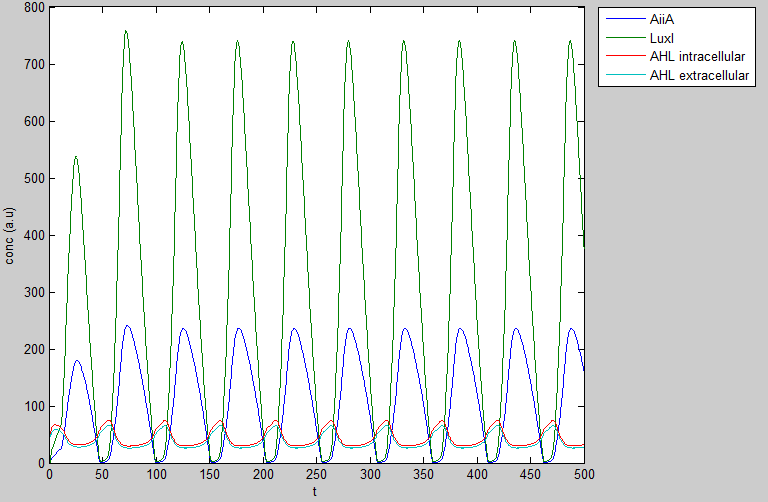Team:Wageningen UR/Project/ModelingProj1
From 2011.igem.org
(Difference between revisions)
(→Mathematical approach) |
(→Modeling the synchronized oscillatory system) |
||
| Line 6: | Line 6: | ||
<!-- *** End of the "please do not edit" section. For the rest: Go ahead! :) *** --> | <!-- *** End of the "please do not edit" section. For the rest: Go ahead! :) *** --> | ||
| - | == | + | == Synchronized Oscillatory System: modeling == |
=== Biological approach === | === Biological approach === | ||
Revision as of 11:20, 16 May 2011
Synchronized Oscillatory System: modeling
Biological approach
Mathematical approach
Our first approach towards the modeling of our synchronized oscillatory system was to reproduce the model used by Danino et al. in the article "A synchronized quorum of genetic clocks", published in Nature in January 2010. This model will be further adapted to fit the specific devices and resources available for the Wageningen UR iGem Team 2011. Figure 1 shows theoretical oscillation obtained by the authors of the paper and depicts "A typical time series of concentrations of LuxI (cyan circles), AiiA (blue circles), internal AHL (green line) and external AHL (red line)."
The graph was created using 4 delay differential equations, which were plotted in matlab by the modeling team, obtaining figure 2 as shown below.
 "
"

